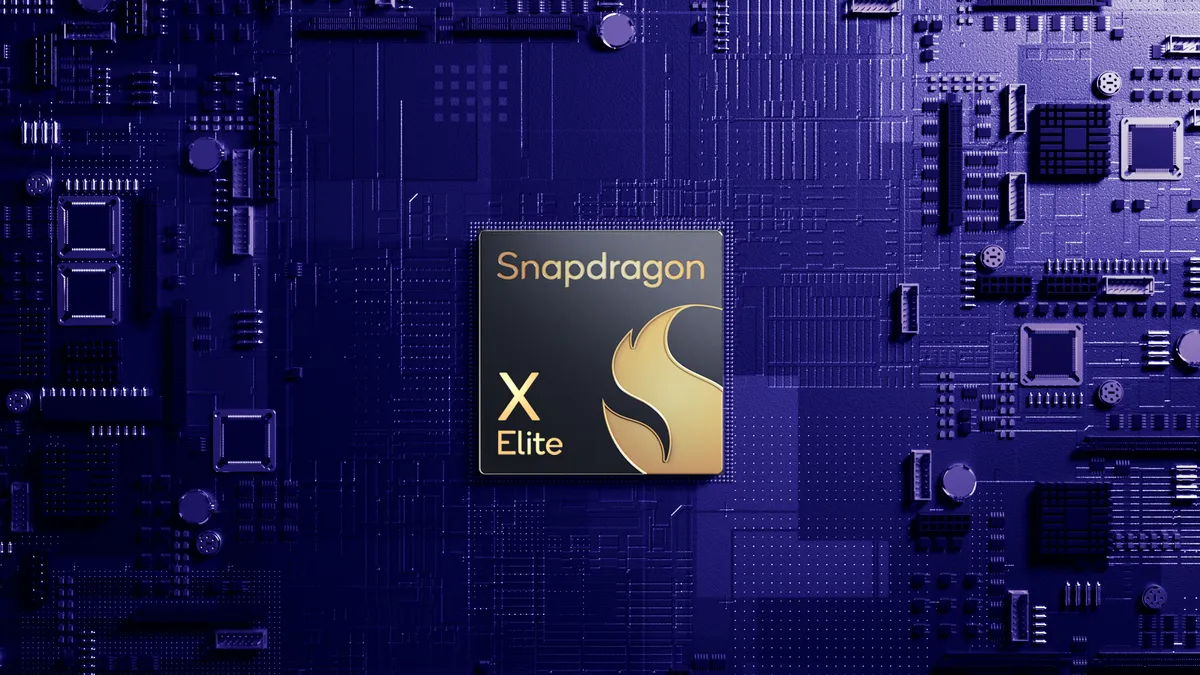Dive Brief:
- Akash Palkhiwala, CFO of Qualcomm, will take on a dual role of finance chief as well as chief operating officer for the semiconductor manufacturer, effective immediately, the company announced in a Tuesday press release.
- As part of his expanded responsibilities, Palkhiwala will oversee global go-to-market organization and operations for the company as well as the IT department, together with his existing CFO obligations, according to the release.
- Palkhiwala is taking on the expanded role as more finance chiefs have begun to take on operational or strategic roles, with many companies merging the CFO and COO positions into one.
Dive Insight:
A leading chipmaker for smartphones and other handheld devices, Qualcomm’s Snapdragon chip series competes with Apple and Intel products. Palkhiwala joined the San Diego, California-based company in 2002 as director of finance and has held numerous key financial and executive positions throughout his more than two-decade tenure, according to his LinkedIn profile. He was appointed CFO in September 2019. For 2023, Palkhiwala received total compensation of $8.5 million, according to Qualcomm’s most recent proxy filed with the Securities and Exchange Commission.
Qualcomm’s decision to bring the operational side of the business under its finance chief’s wing is part of a rising trend of similar moves, with CFOs across industries taking on dual leadership roles within their organizations.
In recent months, retailer Claire’s appointed a joint CFO and COO to its executive team, as did music platform SoundCloud and global technology provider Vislink. The finance chiefs of top brands including Macy’s and Rothy’s have also taken on COO responsibilities in recent years, CFO Dive previously reported.
The gap between the CFOs’ and COOs’ realms has begun to narrow partly because of the changing nature of the finance chief’s role, as well as the flexible nature of the COO position where responsibilities tend to be less defined than that of the CFO, Michael Tannenbaum, COO of spend management platform Brex told CFO Dive in a past interview.
The wide-ranging nature of the COO role — such executives can take point on anything from operational support to risk and revenue management — means that not all companies have had this position included in their C-suites. Over the past decade, roughly 35% of companies reported having COOs, according to data from the latest Volatility Report by Crist|Kolder Associates, with percentages dipping as low as 32% in some years.
The steady merge of the two roles could also come as C-suite career trajectories have begun to change, with the path to the CFO chair broadening beyond the traditional finance or accounting background, for example. Notably, the number of CFOs who are moving to the CEO seat — a career path that has historically been popularly trodden by COOs — is also trending upward, with 8.4% of CFOs promoted to the top executive chair in 2023 compared to 8.1% in 2022, according to the Volatility Report.
Palkhiwala will assume his expanded role as the chipmaker races to keep pace with competitors including Intel and NVIDIA during the generative AI boom. The technology has led to “an unprecedented pace of innovation,” Qualcomm CEO Cristiano Amon said during the company’s fourth quarter and fiscal 2023 earnings call in November.
“On-device Gen AI is evolving in parallel with Gen AI in the cloud enabling entirely new use cases,” Amon said. “It has the potential to change how we interact with our devices making the user experience more natural, intuitive, relevant and personal with increased immediacy, privacy and security.”
Qualcomm is leaning on generative AI technology to bolster faltering revenue in the face of a global slowdown in smartphone sales. Smartphone sales worldwide declined 3.2% year-over-year in 2023, the lowest full-year volume in a decade, according to data by the International Data Corporation. Though the market is expected to recover in 2024, per IDC data, headwinds from slowing sales contributed to Qualcomm reporting a 24% slump in revenues for its fourth quarter to $8.6 billion compared to $11.4 billion for the prior year period, according to its earnings report.
As well as a move to expand its presence in the PC market, Qualcomm is also tapping generative AI to give it an edge as the smartphone market recovers.
“As always running, on-device Gen AI becomes pervasive we believe it will create one of the most significant changes in user experience, similar to the transition from the feature phone to the smartphone and the introduction of the graphical user interface for PCs. Snapdragon will play a significant role in this transformation,” Amon said during the company’s earnings call.
The chipmaker is expected to report first quarter 2024 earnings on Jan. 31. Qualcomm declined to comment on Palkhiwala’s expanded role beyond the details included in its Tuesday release.












